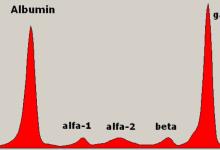Elder Rheumatoids Less Likely to Receive Biologics Save

Multiple studies have shown that elderly rheumatoid arthritis (RA) patients tend to be under-treated and receive DMARD therapies less often than younger RA patients. Now a VAMC study shows that the elderly are less likely to receive biologic agents yet are as likely to be subjected to glucocorticoid use.
A study using national US Veteran’s Affairs databases between 2005–2016 identified RA patients after their first-ever methotrexate (MTX) therapy and analyzed subsequent drug use.
From 17,415 patients on MTX, 3263 received biologic therapy within 2 years (20.6% 2-yr incidence). The rate of biologic use was significantly lower in older patients (aHR 0.20; 95% CI 0.16, 0.26) when comparing those ≥ 80 vs < 50 years of age.
RA patients with comorbidities were less likely to receive biologic agents (aHR 0.79; 95% CI 0.72, 0.87) when comparing those with a Charlson score ≥ 3 vs < 3. Similarly, biologics were less often used in those with heart failure (aHR 0.68), cancer (aHR 0.78) or in nonwhite (aHR 0.79) individuals.
However, glucocorticoid use was similar across age groups and more common in patients with greater comorbidity.
This pattern of drug use in the elderly suggests practitioners are more likely to subject the elderly to more toxic glucocorticoids than to biologics, largely because of their age or confounding comorbidities.
It is worth noting that current treatment guidelines for RA, do not discourage or encourage best practices based on age or even comorbidity limits.










If you are a health practitioner, you may Login/Register to comment.
Due to the nature of these comment forums, only health practitioners are allowed to comment at this time.